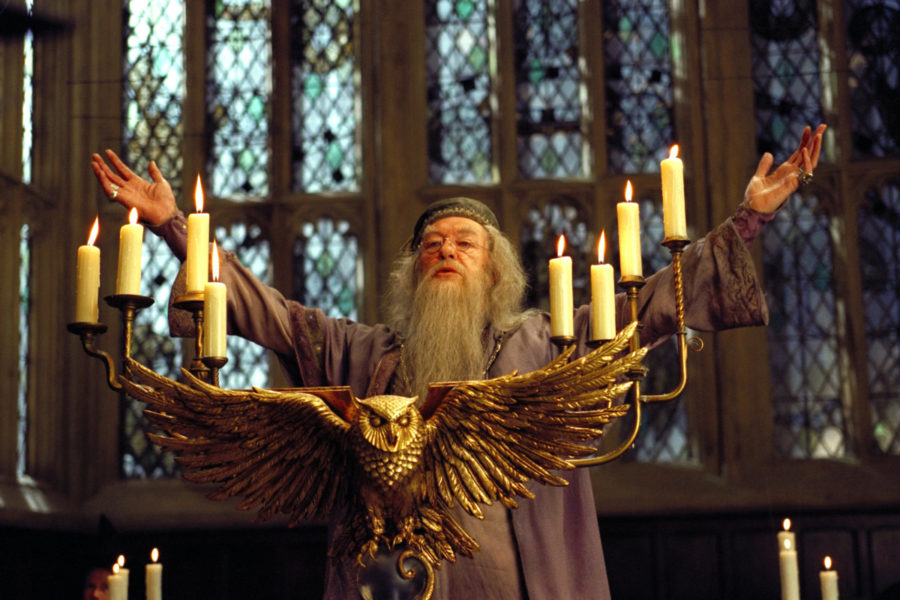The “Harry Potter” franchise is known for many things: magic, great storytelling, complex characters and now, apparently, a gay icon.
For context: in 2007, author J.K. Rowling announced to Carnegie Hall that Albus Dumbledore, one of the major figures in the “Harry Potter” universe, was gay. Not only that, but he was also one-half of a star-crossed romance with series antagonist Grindelwald.
Fast-forward to the present. On March 12th, the DVD and Blu-ray versions of “Fantastic Beasts: Crimes of Grindelwald” were released. The discs include extra content, such as an interview with Rowling. In the interview, she said that Dumbledore and Grindelwald had an “incredibly intense” romantic relationship. Rowling added that there was perhaps a “sexual dimension.”
This is not Rowling’s first attempt at belated representation. In the past, Rowling has alluded to “examples” of representation, such as Jewish wizard students and Hermione Granger as an African-American woman.
The reveal of Dumbledore’s sexuality would be wonderful if there was actual evidence in the canon universe–in either the books or movies. It would have been wonderful for children to grow up with the knowledge that Dumbledore, one of the most powerful wizards in the series, was gay.
However, what content creators like Rowling fail to understand is that representation is not just “being” gay. When writing, it is not enough to simply say that a character was gay, or that a character was of a certain heritage. It is only representation if it is explicitly mentioned in the actual canon.
It is only representation if the sexuality somehow affects the character’s story and arc. Not to say that a character is their sexuality, but rather that sexuality is not an accessory. Sexuality is not an accessory that can be removed at the end of a long day like an uncomfortable pair of heels.
In the books, how did being gay affect Dumbledore’s character and his interactions?
Spoiler: it didn’t.
Furthermore, how often is it that LGBTQ+ characters have happily ever afters? It is much more common to create tragic backstories for LGBTQ+ characters than happy endings. Young adult books like “The Miseducation of Cameron Post” by Emily M. Danforth or “Shine” by Lauren Myracle come to mind.
Dumbledore’s backstory, if Rowling is to be believed, is no different.
Decades before the birth of Harry Potter, Grindelwald betrayed Dumbledore. If the characters were gay, then that is a tragic resolution for a love story.
In conclusion, no matter how well-intentioned, Rowling’s adjustments to the “Harry Potter” universe are misinformed and misplaced. If she truly intended for Dumbledore to be gay, then that element would have somehow been–explicitly–included in the books or movies.
Representation issues aside, the only reason Rowling makes retroactive changes to the series is to continue its relevancy. The book series ended in 2008; the original movies ended in 2011. If J.K. Rowling really wants to encourage representation, she should create new content for a new generation.
The Boy Who Lived grew up; it is time for Rowling to move on.
photo courtesy Pottermore

























